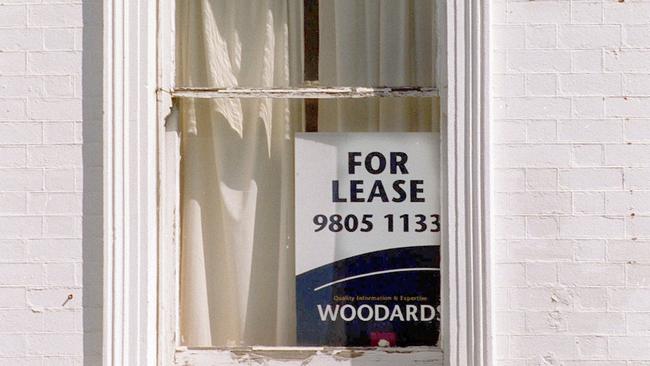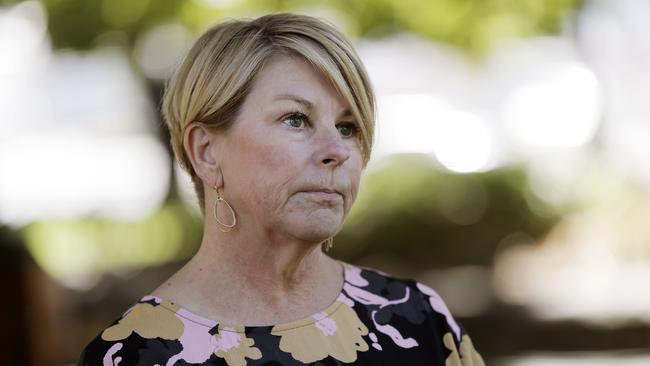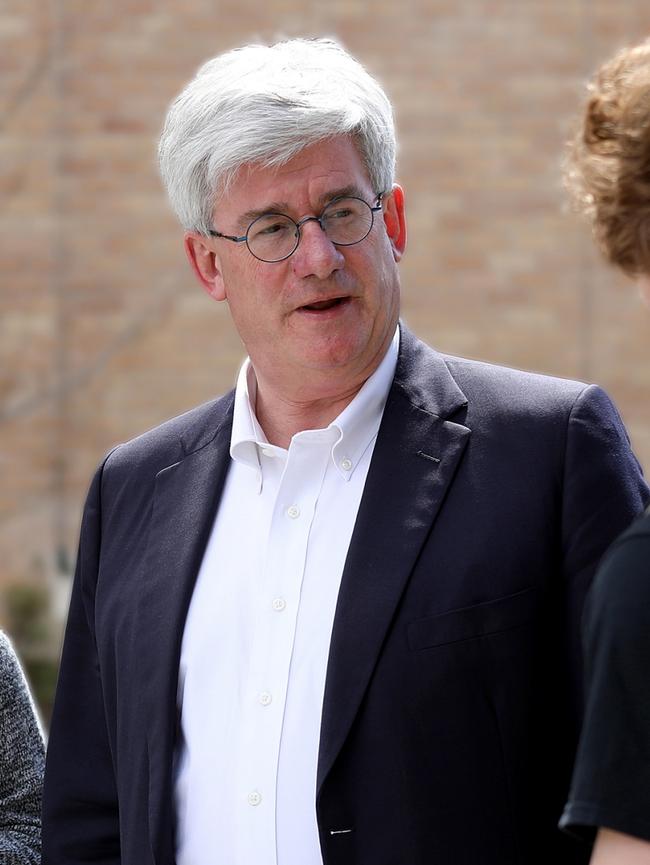Concerns over lack of short-term action to fix Hobart’s rental squeeze
CONCERNS remain over the lack of short-term action on the state’s housing crisis included in policies released by Labor, the Liberals and the Greens, TasCOSS says.

Real estate
Don't miss out on the headlines from Real estate. Followed categories will be added to My News.
CONCERNS remain over the lack of short-term action on the state’s housing crisis included in policies released by Labor, the Liberals and the Greens, TasCOSS says.
And there are questions over how the policies would be paid for, according to economist Saul Eslake.
Tasmania is experiencing a housing crisis, with vacancy rates in Hobart as low as 0.3 per cent.
In recent weeks, the Mercury has reported on working families being forced to live in tents at the Hobart Showgrounds due to a lack of affordable housing, and on open homes, where property managers report up to 50 people are regularly turning up to rental inspections.
The Rental Affordability Index, released late last year, shows Hobart has the second- worst rental affordability level in the country, with average household rents about 28 per cent of total income — just shy of Sydney’s 29 per cent.
The rent for a three-bedroom property in Hobart rose by 10 per cent in the last quarter, and 23 per cent over the past year.
To find out whether affordable housing policies being put forward by the state’s political parties would help to address the crisis, the Mercury asked Mr Eslake, TasCOSS chief executive Kym Goodes, and housing and homelessness peak body Shelter Tasmania to provide analysis and insight.

LIBERAL POLICY
Mr Eslake said the Liberals’ policy would provide $125 million over five years for affordable rental housing, which was a larger amount than being offered by the other parties.
He said a three-year land tax exemption being promised by the Liberals would add directly to the supply of rental housing, “which is the most effective thing any state government can do in response to the shortage of affordable rental housing”.
However, Mr Eslake said the Liberals’ promise to cut stamp duty in half for first home buyers over 12 months was “not a good policy.”
“It’s more likely to add to upward pressure on property prices (benefiting existing homeowners, rather than first home buyers) than to increase the supply of housing or boost the home ownership rate,” he said.
Ms Goodes said the Liberals’ promised significant increase in building new affordable homes was a positive step toward reducing housing-related poverty.
She said a focus on accommodation for young people in the North and North-West and increased housing for people with disability were positive.
LABOR POLICY
On Labor’s plans, Ms Goodes said TasCOSS welcomed plans to address the state’s current housing debt to the Commonwealth, which was “severely impacting” the amount of funds available to invest in new housing stock.

“The Labor plan is strong and evidence based and has been developed through community consultation,” Ms Goodes said.
“It focuses on specific population groups who have high needs including adolescents in and out of home care, over-55s, disability and family violence.”
Mr Eslake said Labor’s plan to expand the Home Share and Streets Ahead programs for first home buyers was better targeted than the Liberals’ proposed stamp duty holiday.
He said Labor was promising $100 million over six years for affordable rental housing, which was an effective response to the current shortfall but less than what was being promised by the Liberals.
GREENS POLICY
The Greens have proposed a tax on vacant residential properties, similar to one introduced in Victoria last year, and something Labor has said it would consider after a review.
The Greens are also the only party who propose regulating investors in the short-stay market.
Labor plans to establish a working group to develop strategies to manage the short-stay market.
“The Green’s policy demonstrates a strong, evidence-based approach with a commitment to review best practice which is welcomed,” Ms Goodes said.
“It also commits to lobbying federally on the deeper structural causes such as capital gains and negative gearing which TasCOSS agrees is a critical need for long-term solutions.”
Following the Mercury’s request for analysis from Mr Eslake and Ms Goodes, the Greens released a second part of their housing policy.
The new measures are targeted at the “housing emergency,” including $30 million over four years for new short, medium and long-term accommodation, 20 new units at Bethlehem House, amendments to the Residential Tenancy Act and Family Violence Act, long-term leases and mechanisms to control rent increases.

OVERALL
In summary, Mr Eslake said it was encouraging all three parties had recognised and responded to the need to increase housing supply, directly or through incentives to investors and landlords.
“This is a key state government responsibility,” he said.
“However, stamp duty exemptions will benefit vendors, not buyers, and the revenue foregone as a result could be used in better ways.
“Finally, what remains unclear is how all of these, and other, policies are going to be paid for.”
Ms Goodes said TasCOSS had given the “green light” to the housing policies of all three parties, and said they drew on the expertise of Shelter Tasmania and the broader community sector.
However, with December’s vacancy rate at 0.3 per cent compared to a national rate of 2.5 per cent, and a shortfall of about 500 properties in Hobart today, immediate issues would remain.
“Our major concern is the lack of response in the short term, to the current crisis,” Ms Goodes said. “While there is no quick or easy answer, we support Shelter’s call for a housing summit to bring together those who can tackle this crisis.”
Shelter Tasmania did not provide separate analysis of each party’s policies, but said it was pleasing that all three had recognised the importance of addressing housing issues at this election.
“We are also pleased that all parties provide ongoing support for Tasmania’s Affordable Housing Strategy, however more is needed,” executive officer Pattie Chugg said.
The organisation has called more public and community homes to be built each year, and says at least 150 are needed annually to keep up with demand.
“Shelter Tas [also] calls for a commitment to reviewing the Residential Tenancy Act to ensure the protection of rights and security of tenure for people renting privately,” Ms Chugg said.
“We also need to see strong commitment from all parties to regulating short-term online accommodation to protect our long-term housing supply.”
Shelter Tas also called for commitments to funding services and facilities for young people in the long term, and address issues in the state’s planning system.


